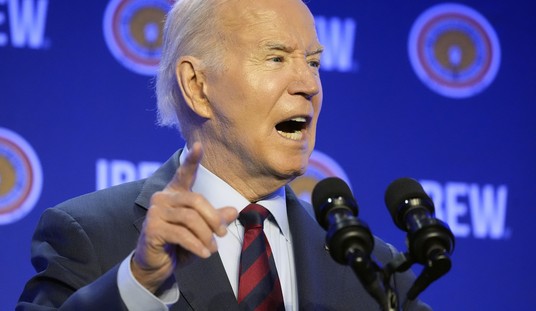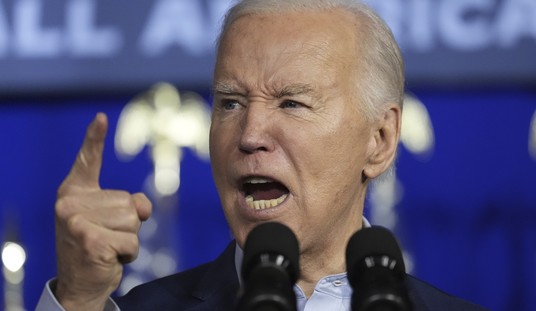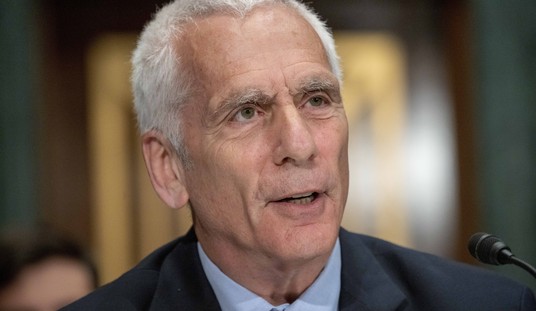A popular narrative regarding President Trump is that the guy is incapable of holding a consistent position on anything for more than about five days. Witness, for example, his Rose Garden praise of the House Obamacare repeal bill followed by his dubbing it “mean” just weeks later. Or his across-the-board tough talk on immigration which has been followed by his keeping Obama’s amnesty for DREAMers. Or his “get tough on China” rhetoric followed by his being pretty nice and pally with… China.
Well, it looks like there’s another example to add to the books: Trump now seems to be flip-flopping about prescription drugs:
To solve the crisis of high drug prices, the group discussed strengthening the monopoly rights of pharmaceuticals overseas, ending discounts for low-income hospitals and accelerating drug approvals by the Food and Drug Administration.
This is pretty much a complete 180-degree reversal. Trump is the guy who accused pharmaceutical companies of “getting away with murder,” wanted Medicare to directly negotiate drug prices with drug companies, wanted to re-import drugs from Canada, and so on. Now, it appears that all of those policies have been abandoned in favor of doing, well, pretty much everything that Big Pharma wants:
“This six-page document contains the kind of solutions to the cost-of-drugs problem that you would get if you gathered together all the executives of pharma and asked them ‘What sort of token gestures can we do?’ ” said Vinay Prasad, a professor of medicine at Oregon Health and Sciences University who studies the costs of cancer drugs.
Now, that’s not necessarily inherently objectionable.
There are solid conservative, philosophical arguments for supporting things that Big Pharma wants; for example, if you are an intellectual property rights maximalist (as many conservatives are, viewing intellectual property rights as a pillar of capitalism), opposing prescription drug re-importation from countries that have weak intellectual property rights regimes is consistent.
Accelerating drug approvals is undoubtedly a good thing, and an idea consistent with limited government principles.
It’s dicier arguing that ditching the 340B drug discount program, or the idea of Medicare negotiating drug prices directly, is truly conservative, since in both cases, it entails accepting that Big Pharma shouldn’t have to sacrifice anything in exchange for getting basically unrestricted access to taxpayer money via entitlement programs that Big Pharma has, conveniently, lobbied to expand at every turn.
But the method here is definitely questionable, because it appears not just that these shifts in policy are being driven by an ex-Pharma lobbyist who now works at the Office of Management and Budget, but also that policy is being directly cribbed from actual Big Pharma talking points:
The documents reveal behind-the-scenes discussions influenced by the pharmaceutical industry. Joe Grogan, associate director of health programs for the Office of Management and Budget (OMB), has led the group. Until March, Grogan served as a lobbyist for Gilead Sciences, the pharmaceutical company that priced its hepatitis C drugs at $1,000 per pill.
[…]
Some of the text in the document is cribbed directly from policy papers published by the pharmaceutical industry’s powerful lobby — Pharmaceutical Research and Manufacturers Association (PhRMA).
[…]
Another section — which recommends giving the FDA more discretion to evaluate generic copies of complex drugs — closely resembles a National Law Review article written by two lobbyists in the pharmaceutical division of Foley & Lardner, whose clients include generic drugmakers.
The politics are also questionable.
Bear in mind that Trump’s base has actually exhibited anger over drug prices and doesn’t really seem to care how “conservative” or “liberal” his policies to bring them down might be; they just want someone to do something.
Which was what they perceived Trump as doing with his prior Big Pharma proposals. Now that he’s scrapping them, you’ve got to wonder how it plays out for him. Trump has long occupied a space where he can do no wrong in the eyes of most of his voters; that said, he has seen a noticeable slide with his actual base.
Stuff like this might ingratiate him with the DC powers-that-be that Steve Bannon, Matt Boyle and the Breitbart crowd used to argue hated Trump purely because of his unorthodox views on prescription drug matters. But if it costs him support with the people who brought him to the dance, so to speak, you’ve got to wonder how this will ultimately play out. No doubt the Bannonites already are.














Join the conversation as a VIP Member